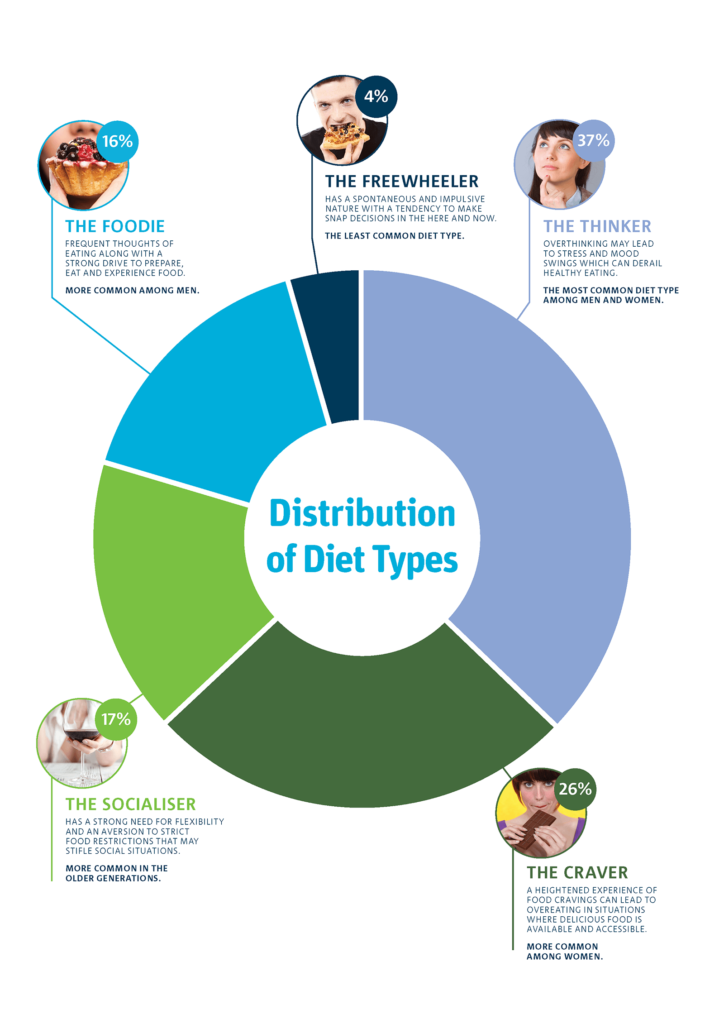
Sticking to a healthy eating plan can be difficult – but a report on the largest Australian diet survey shows your diet personality may be the key to success.
With almost two in three Australian adults overweight or obese, being healthy, and eating a healthy diet, is a huge focus for many of us. But sometimes sticking to a diet can feel like wading through neck-high mud.
Just as our personalities differ, so do our abilities to stick to a healthy diet – and the reasons why we might take a stumble or stop altogether on our road to eating healthy.
To understand why many people find it hard to maintain a healthy diet, we took a close look at the results of Australia’s largest-ever diet survey of more than 90,000 people, and found a lot of it depends on daily habits, lifestyle factors, and your own diet personality.
Food cravings and unattainable goals
Chocolate. Favoured snack of the gods. Nature’s gift to humankind. Almost impossible to turn down.
If that sounds like your train of thoughts when you’re trying to eat healthy, you may be a Craver. We found that people with the Craver diet personality – 25% of the survey participants – resisting delicious foods is a huge challenge.
One of the other main reasons people’s diets come off the tracks is that they set too high a goal to start with. We found that people who identify as Thinkers – 37% of the survey participants – start out with unrealistic expectations of their ultimate eating goals, and inevitably fall off the healthy eating wagon.

The report shed light on diet personalities and common challenges.
The report shed light on diet personalities and common challenges.
Trends through the ages
While we’re not usually ones to subscribe to generalisations about generations, we did find some interesting trends across different age groups.
People from the baby boomer and silent generations were more likely to be Socialisers and Foodies. This might suggest lifestyle and social connections influence a person’s eating patterns at different stages of life.
The key to succeeding: know thyself
If you find yourself side-tracked by delicious junk food or by goals you could never meet, take heart. Our behavioural scientist Dr Sinead Golley says knowing your weak points can help you on your way to healthy eating.
“Knowing your personal diet type, along with your daily habits and lifestyle factors, can provide some answers as to why some weight loss methods haven’t worked for you in the past,” Dr Golley said.
“Having a better understanding of your personal triggers and diet patterns can be the crucial piece of the puzzle.”
Once you know what to look out for, you’ll have a better chance of success.


Craving more?